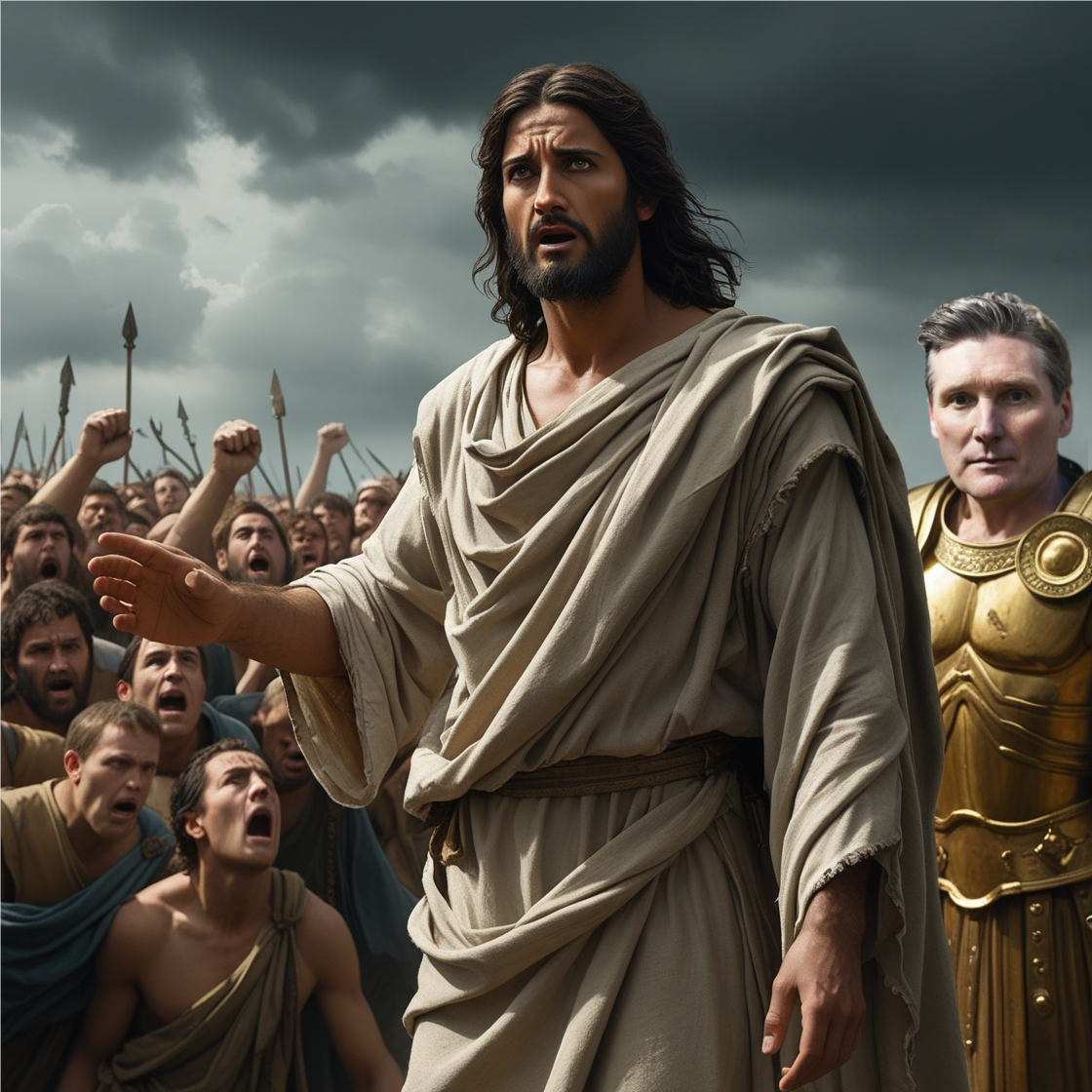
Reading recent very good and though-provoking articles on Christianity, the following idea occurred to me. It’s probably not original I suppose, but it’s knew to me. It is that, if we chuck all the Church-accumulated baggage out and look at it afresh, Christianity is, or should be, a deeply insurrectionist movement, most applicable to today’s situation.
(And maybe that explains why the Globalist Establishment prefers Islam, the very name of which means ‘submission’, and which historically is often associated with autocratic, if not tyrannous government.)
This idea came to me when pondering the "Render unto Caesar what is Caesar's, and unto God what is God's" (Mark 12:13-17), one of Jesus’ best-known sayings. It seems to me that it has been misinterpreted, probably deliberately, by Church and political Establishments for centuries. According to them, it suggests a division between secular and divine responsibilities – and that Christians ought to obediently cough up and pay our taxes to the Caesar of the day, in our case Starmer, the Caligula-Nero of our times. (Nominations open for who is Caligula’s horse.)
However, if you peel back the layers of Establishment self-interest, it becomes apparent – to me at least - that this statement carries a deeper, more revolutionary, implication.
In saying "Render unto Caesar what is Caesar's," Jesus was addressing the immediate context of Roman occupation and the question of paying taxes to the emperor. It's a clever response, sidestepping a trap set by those who sought to accuse him of either rebellion against Rome or betrayal of his own people. The second part of the statement, "and unto God what is God's," can be read as cancelling the first, thus carrying profound weight. Surely, for Jesus, everything truly belonged to or was of God? If so, the assertion removes the authority of earthly powers like Caesar and Starmer. It suggests that while we may engage with worldly political systems, we should do so only if it is good, and Christian. Our ultimate loyalty must belong to a higher, divine authority, an idea that is highly insurrectionary, as it places divine law above the laws of the State and questions the absolute power of earthly rulers.
The message encourages individuals to reflect on where their true allegiances lie and challenges them to consider the transient, often evil, nature of worldly power. It speaks to a deeper truth that, while we live in this world and must navigate its systems, our primary duty is to a higher moral and spiritual order. It also begs the question what, exactly, is Caesar’s? In a democracy with a legitimate government, the answer, from a secular point of view, is what the People say it is. Anything else is, in my view, tyranny.
This perspective can inspire resistance, conscientious objection, or open rebellion against unjust and illegitimate earthly authorities, like Starmer’s tyrannical woke Globalist regime, grounded in the belief that our ultimate accountability is to God or, if you do not believe in God, to a free, sovereign and geographically defined nation as defined by The People.
In this light, Jesus' words are not a call for compliance with political regimes, but instead a metaphoric call to arms against them. They are a reminder of the supremacy of divine – or demotic - authority, encouraging individuals to live with integrity and purpose.
Today, in much of the West, to live with integrity and purpose must necessarily mean opposing the regime and those behind it. This is, surely, especially the case when repressive regimes like Starmer’s attack the foundation of their faith in God and/or the People. It's a timeless message that resonates with those who seek to balance their responsibilities on earth with their spiritual convictions and responsibilities to the tribe.
And we now live in evil times, made evil by the State and its policies. So, render unto Starmer Caesar what is his due – and that is unswerving and implacable opposition.
Thomas The Theologian